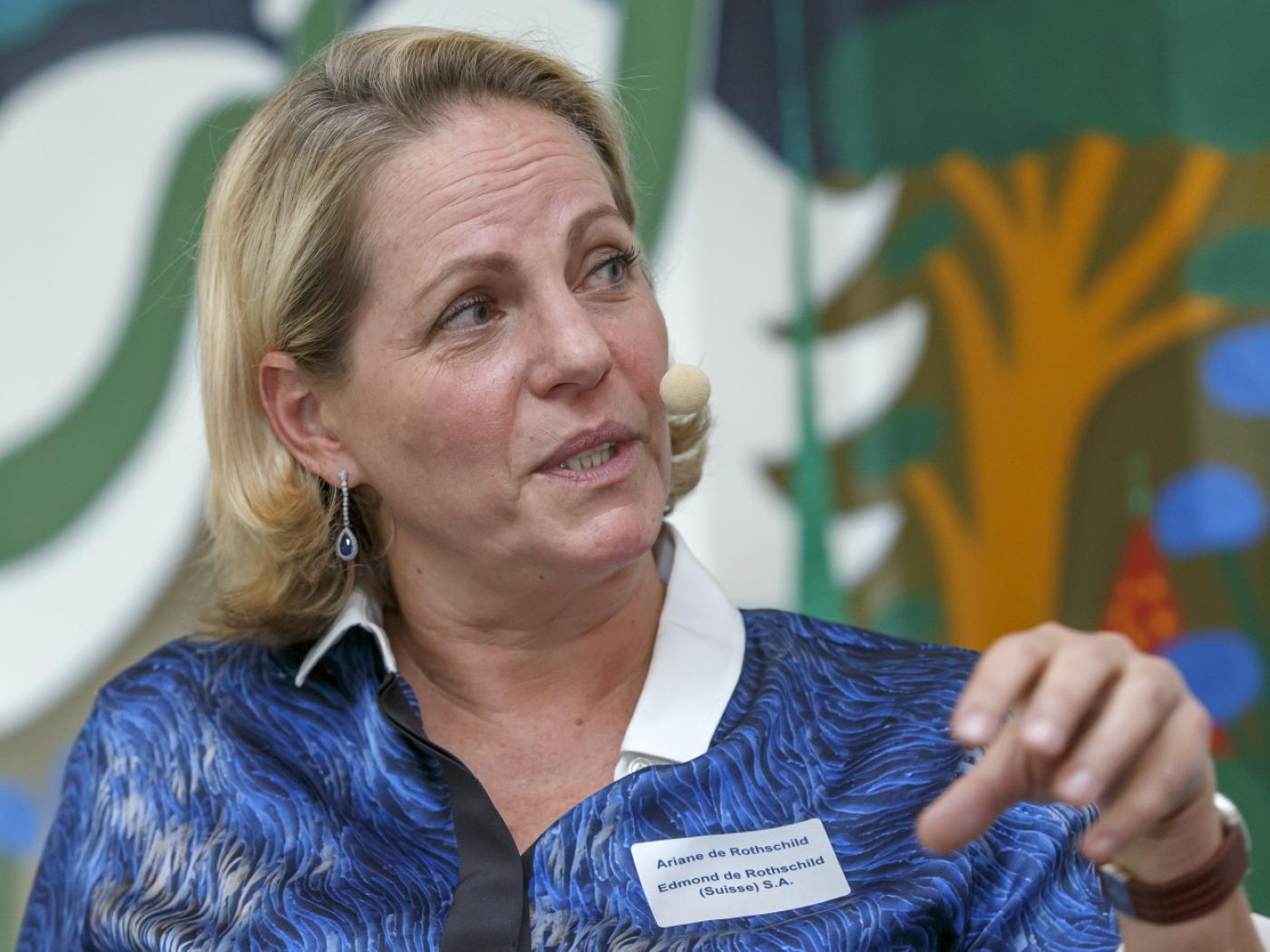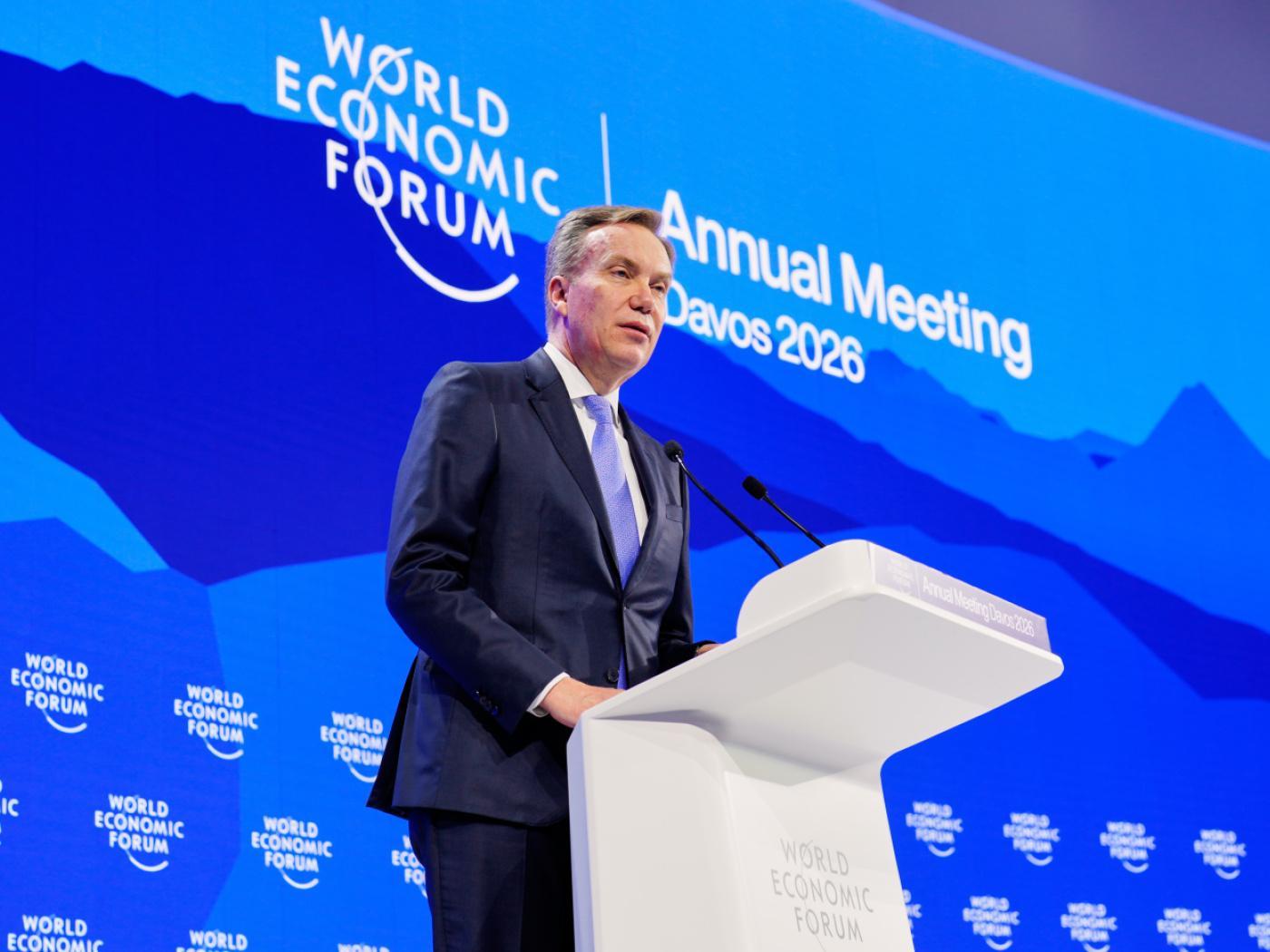 Congress and the president have adopted many critically important policies in great haste during brief periods of perceived national emergency. During the first “hundred days” of the Franklin D. Roosevelt administration in the spring of 1933, for example, the government abandoned the gold standard, enacted a system of wide-ranging controls, taxes, and subsidies in agriculture, and set in motion a plan to cartelize the nation’s manufacturing industries. In 2001, the USA PATRIOT Act was enacted in a rush even though no member of Congress had read it in its entirety. Since September 2008, the government and the Federal Reserve System have implemented a rapid-fire series of bailouts, loans, “stimulus” spending programs and partial or complete takeover of big banks and other large firms, acting at each step in great haste.
Congress and the president have adopted many critically important policies in great haste during brief periods of perceived national emergency. During the first “hundred days” of the Franklin D. Roosevelt administration in the spring of 1933, for example, the government abandoned the gold standard, enacted a system of wide-ranging controls, taxes, and subsidies in agriculture, and set in motion a plan to cartelize the nation’s manufacturing industries. In 2001, the USA PATRIOT Act was enacted in a rush even though no member of Congress had read it in its entirety. Since September 2008, the government and the Federal Reserve System have implemented a rapid-fire series of bailouts, loans, “stimulus” spending programs and partial or complete takeover of big banks and other large firms, acting at each step in great haste.
Any government policymaking on an important matter entails serious risks, but crisis policymaking stands apart from the more deliberate process in which new legislation is usually enacted or new regulatory measures are usually put into effect. Because formal institutional changes—however hastily they might have been made—have a strong tendency to become entrenched, remaining in effect for many years and sometimes for many decades, crisis policymaking has played an important part in generating long-term growth of government through a ratchet effect in which “temporary” emergency measures have expanded the government’s size, scope, or power.
It therefore behooves us to recognize the typical presumptions that give crisis policymaking its potency.
The twelve propositions given here express some of the ideas that are advanced or assumed again and again in connection with episodes of quick, fear-driven policymaking—events whose long-term consequences are often counterproductive.
1. Nothing like the present situation has ever happened before. If the existing crisis were seen as simply the latest incident in a series of similar crises, policy makers and the public would be more inclined to relax, appreciating that such rough seas have been navigated successfully in the past and will be navigated successfully on this occasion, too. Fears would be relieved. Exaggerated doomsday scenarios would be dismissed as overwrought and implausible. Such relaxation, however, would ill serve the sponsors of extraordinary government measures, regardless of their motives for seeking adoption of these measures. Fear is a great motivator, so the proponents of expanded government action have an incentive to represent the current situation as unprecedented and therefore as uniquely menacing unless the government intervenes forcefully to save the day.
2. Unless the government intervenes, the situation will get worse and worse. Crisis always presents some sort of worsening of something: the economy’s output has fallen; prices have risen greatly; the country has been attacked by foreigners. If such untoward developments were seen as having occurred in a one-off manner, then people might be content to stick with the institutional status quo. If, however, people project the recent changes forward, imagining that adverse events will continue to occur and possibly to gather strength as they continue, then they will object to a “do nothing” response, reasoning that “something must be done” lest the course of events eventuate in an utterly ruinous situation. To speed a huge, complex, “anti-terrorism” bill through Congress in 2001, George W. Bush invoked the specter of another terrorist attack. Barack Obama, Invoking the specter of economic collapse, rushed through Congress early in 2009 the huge Economic Recovery and Reinvestment Act before any legislator had digested it. In a February 5, 2009, op-ed in the Washington Post, he wrote, “If nothing is done … our nation will sink deeper into a crisis that, at some point, we may not be able to reverse.”1 At a February 9 press conference, he said “[A] failure to act will only deepen this crisis,” and “could turn a crisis into a catastrophe.”2
3. Today is all-important; we must act immediately. In his first inaugural address, Franklin D. Roosevelt declared, “This nation asks for action, and action now.” He then proceeded directly to speak of the most terrifying problem of the day, mass unemployment. “Our greatest primary task is the put people to work … It can be accomplished in part by direct recruiting by the Government itself, treating the task as we would treat the emergency of a war, but at the same time, through this employment, accomplishing greatly needed projects to stimulate and reorganize the use of our national resources.” In any event, “The people want direct, vigorous action.”3
Similarly, not long after taking office, Barack Obama similarly declared, not long after taking office, “The situation is getting worse. We have to act and act now to break the momentum of this recession.”4 “Doing nothing is not an option,” he said in Elkhart, Indiana on February 9. “The situation we face could not be more serious,” and “we can’t afford to wait.” 5 In the February 5 op-ed, listing a series of objectives he claimed the pending legislation would achieve, he began four successive paragraphs with the words “now is the time to…”6
4. Government officials know or can quickly discover how to remedy the problem. All government policies adopted to meet a crisis presume that the government knows how to effect the rescue it seeks. The government officials may sometimes admit, as in the early new deal, that is does not know exactly how to proceed, yet it maintains that “doing something” is better than doing nothing. Roosevelt maintained that the government ought to try something and, if that measure failed, then try something else. Thus, ignorant flailing about— on the assumption that “doing something” has no costs, adverse effects, or untoward long-term consequences—has been touted as a virtue, and indeed many members of the public, no more expert than the government itself have agreed that the government must “try something.”
5. We may safely rely on the establishment and on its insiders for expertise in this crisis. As a common first step in reacting to a crisis, the government often assembles a council of experts or some such group of wise men and women. These experts are invariable drawn from the government itself and from groups with whom the government maintains cozy relations. The experts frequently include those who had responsibility for carrying out the government policies that contributed to the occurrence of the crisis in the first place. Thus, no matter how ill fated monetary policy may have been, the government will call on the secretary of the Treasury and the head of the Federal Reserve System to decide, perhaps along with others, what should be done next. In this constructed circle, the range of possible future actions the government might take is almost always no wider than the range of actions taken in the past. Hence, the “experts” are subject to repeating the same errors time and again.
6. We may trust the government to act responsibly and effectively on the basis of the expertise they command. The public looks to government officials and their assembled “wise men” to act in the public interest and to organize their actions in an effective manner. If the policy makers lack the requisite knowledge, then such trust is bound to be misplaced, because no matter how responsibly the policy makers may try to be, they simply don’t know what they are doing. If they do have the requisite expertise, however, they may still fail to act on it because of their political, ideological, or personal interests and connections.
The public tends to think of crises as akin to mechanical problems—the car’s engine is not running; policy makers need to give it a “jump start.” Crises, however, are rarely so simple. More often, they involve far-reaching relationships among many individuals, groups, and nations, and the lack of productive coordination that the crisis represents can seldom be restored by simple policy actions such as “the government ought to double its spending and rely on borrowed funds to cover its budget deficit. Complex political, social, and economic breakdowns rarely take a form subject to easy treatment activist policymakers (though many of them can take care of themselves if only policymakers stand aside from them.)
7. The clear benefits of quick government action may be assumed to outweigh its costs and its actual or potential negative consequences. Crisis decision making is not characterized by careful attempts to justify actions on a benefit-cost basis. If the situation is dire, policy makers and many members of the public simply assume that a policy with positive net benefits may be adopted. Little basis exists for this assumption. Even in a crisis, the government may take many actions whose costs and risks greatly outweigh any benefit they may bring. The potential is great for focuses on benefits that are immediate and visible while disregarding costs that are delayed and less easily perceived. Thus, policymakers are likely to plunge almost blindly ahead where more calculating angels fear to tread.
8. Fact finding, deliberation, study, and debate are too time-consuming and must be forgone in favor of immediate action. In April 1932, a year before the momentous explosion of New Deal measures after Roosevelt took office, Felix Frankfurter complained in a letter to Walter Lippmann that “one measure after another has been … hurriedly concocted…. They have been denominated emergency efforts, and any plea for deliberation, for detailed discussion, for exploration of alternatives has been regarded as obstructive or doctrinaire or both.” 7 The events of the spring 1933 congressional session raised all of these attributes by an order of magnitude.
President Obama likewise recently declared that enough debate had occurred on the massive “stimulus” package even though it had been rushed through both houses of Congress, neither of which had paused to hold hearings on it. “We can’t posture and bicker. Endless delay and paralysis in Washington in the face of this crisis will only bring deepening disaster.”8
9. Existing structures and incumbent firms must be preserved; new structures and firms are unthinkable. Existing office holders, bureaucrats, firm managers, and owners have a decisive political advantage over possible alternative occupants of their positions (“new entrants”). Hence, the overriding theme in any crisis is that current politicians and capitalists must be preserved—propped up, bailed out, subsidized, whatever it takes to save them and their present organizations.
In truth, however, the best way to deal with some crises is by getting rid of the persons and organizations that helped to bring them on. Bankruptcy, for examples, is not the end of the world, but simply the end of existing stockholders. If a company still possesses valuable assets, they will be transferred to new and presumably more competent managers.
10. If a policy is not getting the results its proponents promised, more money should be poured into it until it finally “works.” This presumption receives application to government policies in general, not simply to crisis policies in particular, but it gains force during a national emergency, when getting results as regarded as especially imperative.
By the time Barack Obama became president, the U.S. Treasury and the Fed had made commitments for trillions of dollars in loans, capital infusions, loan guarantees, and other purposes. Yet, the economy continued to sink. The president and his senior advisers did not conclude that these measures had failed, but only that they had been too timid.11 Thus, President Obama told reporters that after Japan’s bust in the early 1990s, the Japanese government “did not act boldly or swiftly enough,” even though it spent trillions of dollars on construction projects. Likewise, Treasury Secretary Timothy Geithner concluded from his study of the Japanese stagnations that “spending must come in quick, massive doses, and be continued until recovery takes firm root.”9
11. We must not be deterred by the accumulation of public debt; there is no practical limit to the amount the government may safely borrow. Political office holders prefer to finance their spending by borrowing rather than taxing, if possible. That way, the public does not feel so dispossessed and therefore is less inclined to oppose the spending programs. In a national emergency, the office holders’ preference for deficit finance comes ever more boldly to the fore, and throughout history governments have tended to borrow heavily to pay for major wars. With the dawning of the Age of Keynes, deficit financing during recessions acquired an ostensible intellectual rationale, magnifying whatever inclinations the politicians already possessed. At present, the public debt is rising at an unprecedented rate, yet few people raise serious objections to the government’s spending program on this ground. Virtually everyone who matters politically is content to rely on what I call “vulgar Keynesianism”—or at least pretend to do so.
12. The occasion demands that policymakers put aside partisan or strictly political maneuvering and act entirely in the general public interest, and we can expect them to do act accordingly. After Woodrow Wilson had sought and gained a congressional declaration of war in 1917, he declared that “politics is adjourned.” By this expression, he sought to convey the idea that he would henceforth abstain from the usual partisan maneuvering and devote himself to prosecution of the war in the most effective way and that, he hoped, others would do the same. Whether his announcement of the adjournment was sincere or merely attempt to point those who disagreed with his war policies as partisan obstructionists, we do not know. We do know, however, that partisan political actions did not cease on either side.10
In a similar way, President Obama recently declared, “We are in one of those periods in American history where we don’t have Republicans or Democratic problems, we have American problems. My commitment as the incoming president is going to be to reach out across the aisle to both chambers to listen and not just talk, to not just try to dictate but try to create a partnership … [W]e’re … not going to get bogged down by old-style politics on either side.” 11A month later he reiterated this idea, denouncing “the same old partisan gridlock that stands in the way of action while our economy continues to slide.” And promising “We can place good ideas ahead of old ideological battles, and a sense of purpose above the same narrow partisanship.”12 Even as he made this declaration, however, partisan maneuvering continued as usual on both sides in Congress.
Politics cannot be put aside. Politics is what politicians and political interest groups do. Partisanship is inevitable as political actors who seek conflicting ends struggle for maximum control of the government.
[Chapter 6 of Delusions of Power, published by the Independent Institute.]
- 1. Barack Obama, “The Action Americans Need,” Washington Post, February 5, 2009.
- 2. Jacob Sullum, “Fear Is His Friend,” Reason, February 11, 2009, http://www.reason.com/news/show/131612.html.
- 3. Franklin D. Roosevelt, First Inaugural Address, March 4, 1933, http:// www.bartleby.com/124/pres49.html.
- 4. Quoted in Tom Baldwin, “Barack Obama gets to work on ‘very sick’ US economy,” The Times Online, January 6, 2009, http://www.timesonline.co.uk/tol/news/world/us_and_americas/us_elections/article5454714.ece.
- 5. Quoted in Sullum, “Fear Is His Friend.”
- 6. Obama, “The Action Americans Need.”
- 7. Frankfurter as quoted in Larry G. Gerber, The Limits of Liberalism: Josephus Daniels, Henry Stimson, Bernard Baruch, Donald Richberg, Felix Frankfurter and the Development of the Modern American Political Economy (New York: New York University Press, 1983), 267–68.
- 8. Quoted in Sullum, “Fear Is His Friend.”
- 9. Both Obama and Geithner quoted in Sullum, “Fear Is His Friend.”
- 10. Seward W. Livermore, Politics Is Adjourned: Woodrow Wilson and the War Congress, 1916–1918 (Middletown, Connecticut: Wesleyan University Press, 1966).
- 11. Quoted in Baldwin, “Barack Obama gets to work.”
- 12. Obama, “The Action Americans Need.”
Tags: Featured,newsletter



























